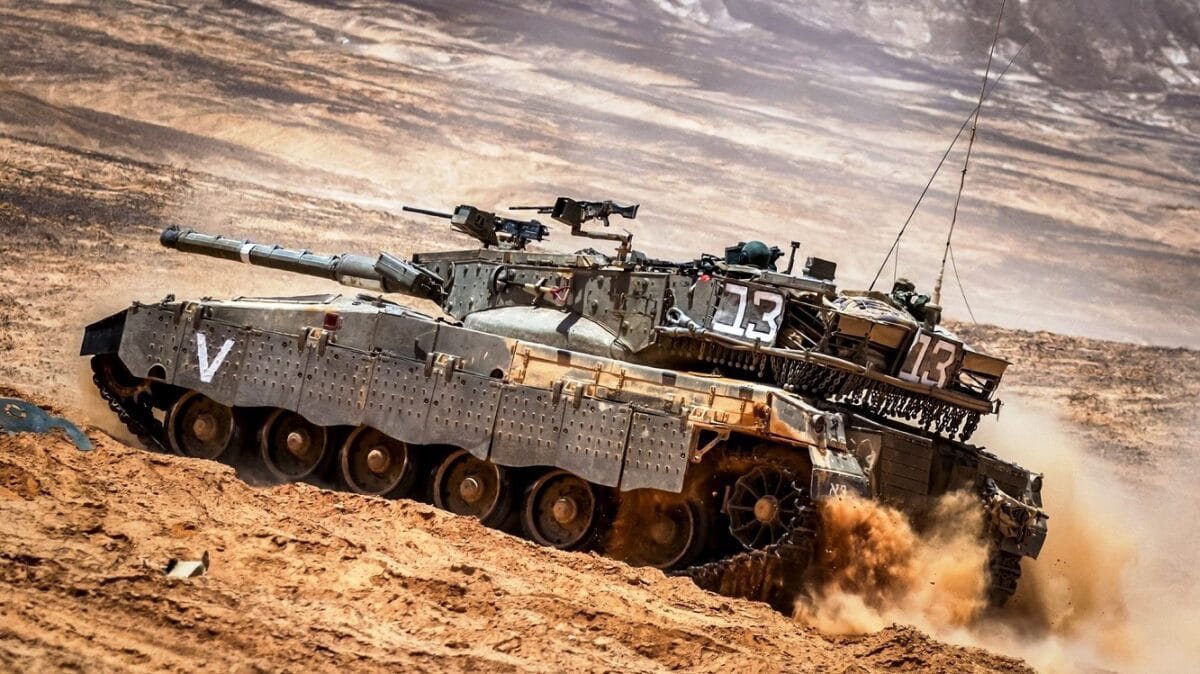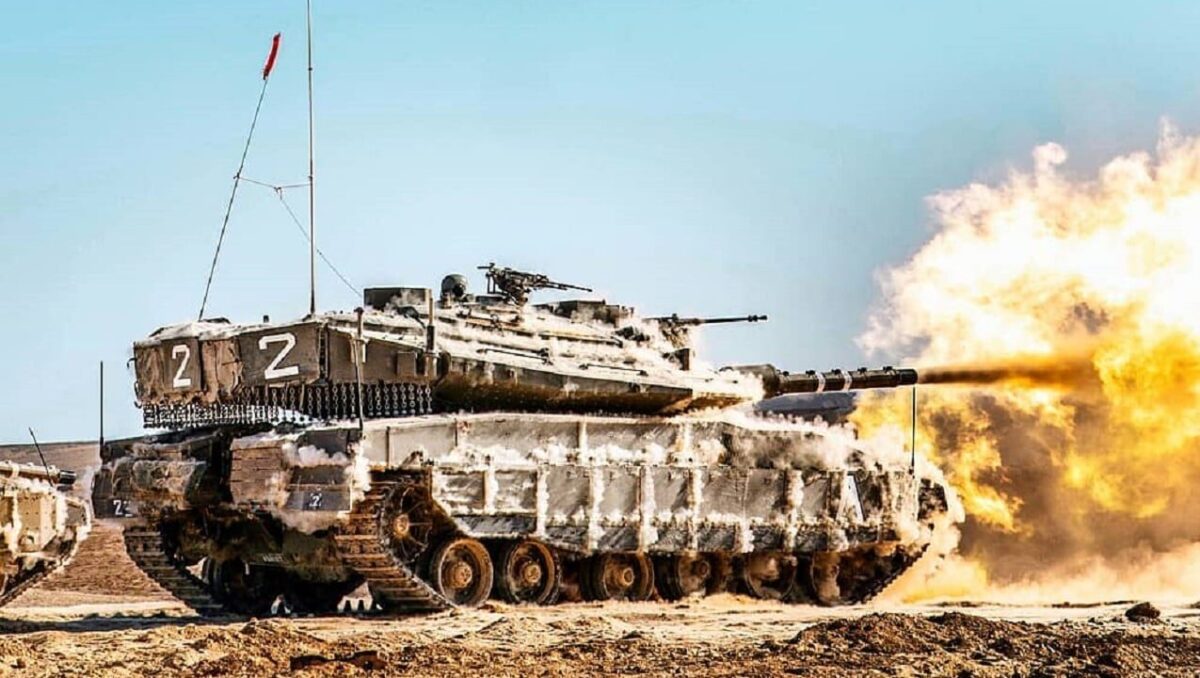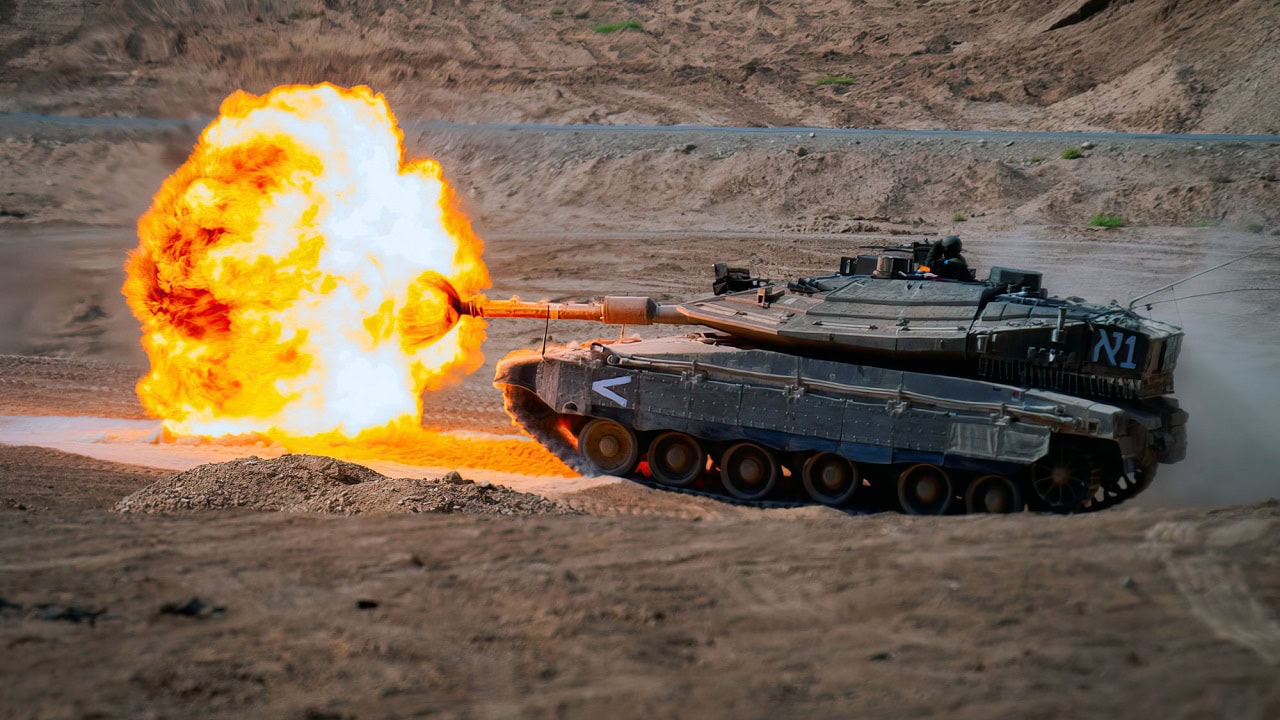Since 1948, Israel’s Defense Forces (IDF) has played an instrumental role in preserving the survival of the Jewish state. Israel has undergone a major military operation in every decade since its inception that has shaped the country’s defensive and offensive strategies.
Its Ground Forces have served in every mission, including the 1948 Arab-Israeli War, the 1956 Suez Canal Crisis, the 1967 Six-Day War, the 1973 Yom Kippur War, the 1976 Operation Entebbe, the 1982 Lebanon War, the First and Second Intifadas and the Gaza Wars.
Despite its small population size and lack of funds and weaponry early on, Israel hosts a formidable army that could arguably be called the most powerful in the region.
Israeli Army: Origins
Prior to Israel’s founding in 1948, an underground military organization dubbed “The Haganah” functioned to protect the new state free of foreign authority. At the end of World War I, the Allies assigned Great Britain the mandate over Palestine. In 1920, riots in Jerusalem turned deadly between Jews and Arabs around the Old City. In response to the riots, British troops withdrew from the territory and were blamed for failing to stop the violence.
The Haganah grew from the riots and the Jew’s mistrust in the British troop’s abilities. The organization evolved from an unorganized militia to a full-on military after a second wave of riots swept the region in the late 1930’s, referred to as the Arab revolt. Then-Prime Minister Ben-Gurion transformed the Haganah into the IDF in 1948.
Israel’s army has grown to become the powerful entity it represents today in part due to its weapons arsenal. In its early wars, the IDF learned from its mistakes and failures in combat and began enhancing available foreign tech to serve its missions. Israel’s Spike missile is a perfect example. The fire-and-forget anti-tank guided missile is considered to be the premier in its field according to experts. The weapon came to fruition following the 1973 Yom Kippur War.
Ill-equipped and out-numbered, Israel’s Armored Forces struggled to contend with enemy fire during the assault in the southern Golan region. Over one hundred Israeli soldiers died at the onset of this conflict, which led to the creation of the tank killing missile.
Since its introduction in the IDF, the Spike missile has been used successfully in countless battles and has been exported to several militaries worldwide.
The Israeli Army Is Well Equipped
Another critical component in the Israeli Army’s arsenal is the Merkava tank. The battle tank entered service in the 1970’s after the United Kingdom reversed a joint-tank initiative that would have provided Israel with its Chieftain tanks.

Merkava Tank. Image Credit: Creative Commons.

Israeli Merkava Tank. Image Credit: Creative Commons.
At this point, the IDF understood it could not rely on foreign imports to ensure its armored superiority. Israel’s prioritization of ramping up its domestic production capability led to the debut of the battle tank. Considered to be the backbone of the armored corps, the Merkava tank is in part responsible for Israel’s success against the Syrian T-72 tanks in the 1982 Lebanon War.
Israel’s cutting-edge arsenal today makes the IDF a powerhouse in the Middle East. In addition to its sophisticated domestic product capabilities, the Jewish state’s enhancements and modifications of foreign technology shape its military potential.

